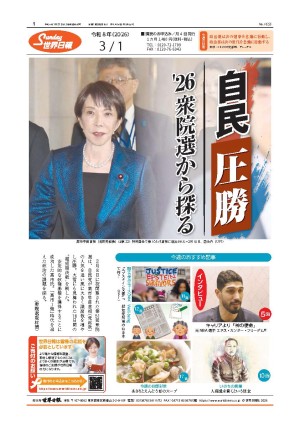中絶支持派に有利なSNS新方針、アイルランドで国民投票 Google, Facebook’s new policy benefits pro-abortion side ahead of Irish vote, critics say
フェイスブックとグーグルが、25日に実施されるアイルランドでの中絶をめぐる国民投票を前に政治的広告を制限する措置を取ったことで、中絶反対派が反発を強めている。国民投票は接戦が予想され、反対派は、ソーシャルメディア企業が、直接、関与する意図がなくても、選挙の行方を左右する強い影響力を行使する力を持っていることが改めて示されたと主張している。
フェイスブック、グーグルなどは、政治広告の扱い方、英国での欧州連合(EU)離脱(ブレグジット)をめぐる議論や2016年米大統領選をめぐって偽情報が掲載されていたことが激しく非難された。そのため、25日の投票を前に課せられた広告への制限は、フェイスブック、グーグルなどが政治的非難を回避しようと取った措置という見方が強い。
アイルランドの国民投票は、近年他にあまり例が見られないほどの接戦。中絶に関して欧州で最も厳しい同国の制約を緩和するかどうかをめぐって投票が行われる。
中絶反対派は、フェイスブックによる、外国の団体からの国民投票に関する全広告、事実確認記事の禁止などのネット上の制限措置は、中絶支持派支援を狙ったものであることは明らかだと主張している。
アイルランドのカトリック教会の司祭で、FrontPage.orgの創設者マーセル・デラクルス師は23日のウォール・ストリート・ジャーナル紙に掲載されたコラムで「アイルランド政府と保守系メディアの多くは、有権者が中絶合法化推進を拒否することへ期待を強めている。ソーシャルメディアは(中絶を禁止したアイルランド憲法の)廃止に反対する人々が大衆に訴えるための数少ない手段の一つだ」と訴えた。
議論の核心は、ソーシャルメディアに対する批判の中で指摘されてきた「時限爆弾」にある。ソーシャルメディアは、はっきりと見えず、規制も掛けられないデジタル情報から成り、アルゴリズムを基に大衆の認識を形成するものの、そのコンテンツを管理することはできない。
ソーシャルメディアアプリ、PikMobileのCEO(最高経営責任者)スコット・レルフ氏は「フェイスブックは、どのような広告が掲載されているかは把握していない。グーグルはフェイスブックより多少いいが、それでも大したことはない。自社のプラットフォームで何が起きているかを会社側は知らないが、それを認めようとしない」と指摘した。
スプリント社のPCS/ワイヤレス部門を100億㌦企業に育て上げた開発チームを率いたレルフ氏は、重要なのはグーグルとフェイスブックが政治に関わらないことだと主張した。
だが、アイルランドの選挙戦でそれが容易でないことがはっきりした。
フェイスブックは、米大統領選でロシアの正体不明の組織に利用されて、プロパガンダを拡散させ、分断を招く間違った情報を広めたことで批判された。その痛手を引きずっているフェイスブックは8日、アイルランド国外からの国民投票関連の広告を引き受けないことを発表した。
その翌日、グーグルも国民投票関連の広告を受け入れないことを発表した。
アイルランドには米国と同様、ラジオやテレビなど、従来の政治広告を規制する法律がある。しかし、ソーシャルメディアへの規制はない。中絶反対派は、憲法の中絶規制の緩和を支持するバラッカー首相を、ソーシャルメディアに方針転換を働き掛けていると非難した。
(5月23日付)
A move by Facebook and Google to restrict political advertising ahead of Ireland’s fiercely contested abortion referendum Friday has outraged critics, who call it the latest example of the social media giants’ power to put a heavy digital thumb on the electoral scales - even when they strive not to get involved.
After heavy criticism of their handling of political advertising and planted false stories in the Brexit debate in Britain and the U.S. 2016 presidential race, many see the restrictions imposed ahead of Friday’s vote as a possible model for Facebook, Google and other platforms as they try to escape the political crossfire.
The restrictions are being introduced in one of the most hotly contested national votes in recent memory. Irish voters will be heading to the polls to consider easing some of Europe’s most restrictive laws on abortion.
Irish abortion opponents say the online restrictions, including Facebook’s ban on all ads on the referendum from foreign groups and fact-check stories, were clearly intended to benefit the pro-choice side.
“The truth is the Irish government and many in the traditional media have grown concerned that voters will reject their push for legalized abortion,” The Rev. Marcel de la Cruz, an Irish Catholic priest and founder of FrontPage.org, wrote in a Wall Street Journal op-ed piece Wednesday. “Social media is one of the few avenues of public outreach left to those to oppose repeal” of Ireland’s constitutional prohibitions on abortion.
The debate cuts to the heart of what industry critics call the “ticking time bomb” of social media - the murky world of unregulated digital information that shapes public perceptions based on algorithms that lack the ability to control content.
“Facebook does not know what is being advertised,” said Scott Relf, CEO of social media app PikMobile. “Google has a little more handle on it, but barely. These companies really don’t know what’s happening on their platforms, but they will not admit that.”
Mr. Relf, who oversaw the development teams that grew Sprint’s PCS/Wireless Division into a $10 billion industry, said the bottom line is that Google and Facebook should have stayed out of politics.
That hasn’t proved easy in the Irish campaign.
Still stinging from charges that it was exploited in the last U.S. presidential election by shadowy Russian groups that spread propaganda and promoted false, divisive stories, Facebook on May 8 announced that it would no longer accept referendum-related ads from outside Ireland.
The following day, Google went further, saying it would take no ad related to the referendum.
Ireland, like the U.S., has laws that regulate traditional forms of political advertising, including radio and TV. But no regulations cover social media. Abortion opponents accused Prime Minister Leo Varadkar, who supports easing the constitutional restrictions, of lobbying the social media giants to make the change.
May 23, 2018





